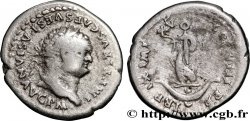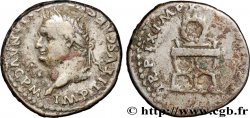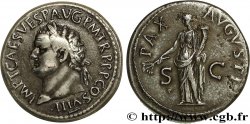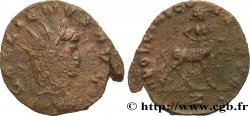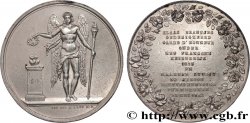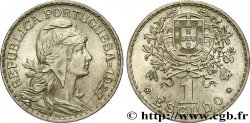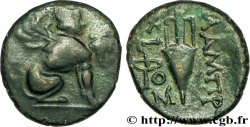You must signin and be an approved bidder to bid, LOGIN TO BID. Accounts are subject to approval and the approval process takes place within 48 hours. Do not wait until the day a sale closes to register. Clicking on « bid » constitutes acceptance of the terms of use of cgb.fr private e-auctions.
Bids must be placed in whole Euro amounts only. The sale will start closing at the time stated on the item description; any bids received at the site after the closing time will not be executed. Transmission times may vary and bids could be rejected if you wait until the last second. For further information ckeck the E-auctions F.A.Q.
NO BUYER'S FEE.
NO BUYER'S FEE.
| Estimate : | 65 € |
| Price : | 44 € |
| Maximum bid : | 70 € |
| End of the sale : | 26 October 2020 14:33:30 |
| bidders : | 6 bidders |
Type : Denier
Date: juillet - septembre
Date: 79
Mint name / Town : Roma
Metal : silver
Millesimal fineness : 900 ‰
Diameter : 18 mm
Orientation dies : 6 h.
Weight : 3,04 g.
Rarity : R1
Officine: 4e
Coments on the condition:
Exemplaire sur un petit flan court sur les légendes à l’usure très importante, identifible. Fourré
Obverse
Obverse legend : IMP TITVS CAES VESPASIAN AVG P M.
Obverse description : Tête laurée de Titus à droite (O*).
Obverse translation : “Imperator Titus Cæsar Vespasianus Augustus Pontifex Maximus”, (L’empereur Titus césar Vespasien auguste grand pontife).
Reverse
Reverse legend : TR P VIIII IMP XV COS VII P P.
Reverse description : Trophée aux pieds duquel se trouve un captif agenouillé à droite.
Reverse translation : “Tribunicia Potestate undecimum Imperator quintum decimum Consul septimum Pater Patriæ”, (Revêtu de la neuvième puissance tribunitienne et la quinzième acclamation impériale consul pour la septième fois père de la patrie).
Commentary
Rubans de type 3. Ce denier fait référence aux victoires d’Agricola sur les Bretons. C’est l’une des premières émissions de TItus après son accession en juin 79. C’est la première fois que nous proposons ce type à la vente. Ce type semble beaucoup plus rare que ne le laissent supposer les ouvrages généraux.







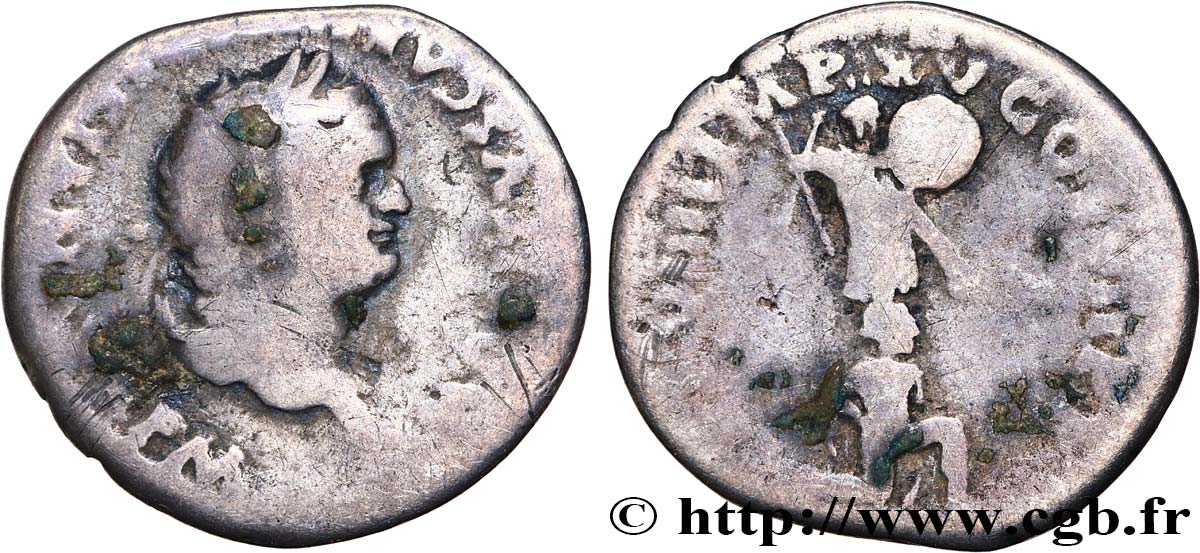
 Report a mistake
Report a mistake Print the page
Print the page Share my selection
Share my selection Ask a question
Ask a question Consign / sell
Consign / sell
 Full data
Full data